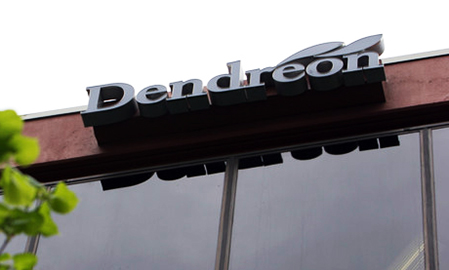Prostate cancer drug maker Dendreon is seeking Chapter 11 bankruptcy protection, a move that Bloomberg notes could wipe out “shareholders in a company that pioneered the use of patients’ immune systems to fight tumors.” The company has struggled for years and Bloomberg says the drug’s high price and cumbersome administration have made it a hard sell. Dendreon has also been adamant about handling the product on its own, as opposed to teaming up with a bigger company, unlike weight-loss alliances such as those seen between Takeda and Orexigen and Eisai and Arena. Dendreon said in a statement that it will “continue to operate in the ordinary course, including continuing to service distributors and wholesalers.”
Mylan and Disney have inked a deal that will flood the Magic Kingdom with EpiPen promotions. Pharmbiz reports that the two have signed a multi-year deal that includes maps on Disney cruise ships and of its theme parks that show where visitors can find EpiPen injectors. PharmaBiz says the plan also includes “a variety of educational resources designed to increase awareness of and preparedness for severe allergic reactions.”
Lilly’s weekly type-two diabetes injection Trulicity (dulaglutide) is now in pharmacies. The FDA approved the GLP-1 medication in September. Lilly is supporting the launch with savings cards that provide a $25 discount for each prescription for up to two years.
The FDA has pulled Ranbaxy’s first-to-market claims for generics of Genentech’s cytomegalovirus virus medication Valcyte (valganciclovir hydrochloride) and AstraZeneca’s GERD drug Nexium (esomeprazole) but at least one generic is coming on board. Reuters reports that Indian generics maker Dr. Reddy’s has the regulator’s OK to manufacture generic Valcyte. Generic Nexium does not yet have a manufacturer. AstraZeneca said in last week’s earnings call that it does not expect to fight a prescription generic until 2015.
ICYMI: Bloomberg Businessweek writes that FDA safety questions have put a damper on testosterone replacement therapy sales. “IMS says total sales of testosterone drugs fell 6 percent in the first half of 2014 from the same period the year before,” according to Businessweek. The NIH will run a study in 2015 to evaluate whether these drugs offer any benefit compared to placebo. The magazine also notes that advertising for the drug class has begun to narrow: “In the first half of 2014, Lilly’s [Axiron] and AbbVie’s [Androgel] ad spending dropped 13 percent, to $54.1 million, from the first half of last year, according to Kantar.”







